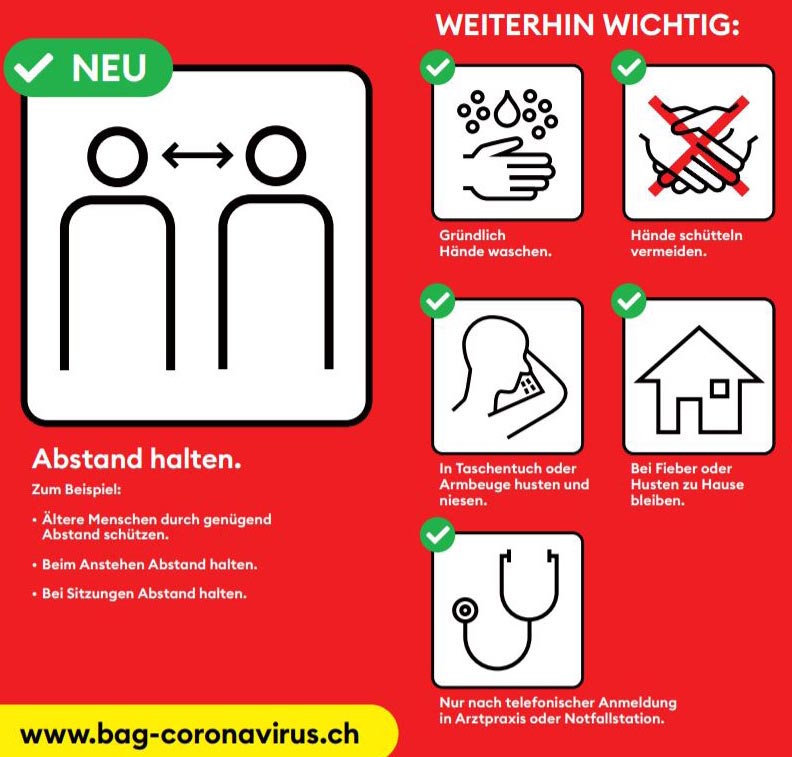Coronavirus: army assistance service supports hospital facilities
In the fight against the coronavirus, the army's assistance service can support civilian hospital facilities. This has been decided by the Federal Council.

© BAG
Support hospital submissions
If necessary, the Federal Council wants to make the army's assistance service available to the cantons, for example to support civilian hospital facilities. This was announced today, Friday, March 6. The responsibility for deployment lies with the civilian authorities. If the assistance service exceeds the duration of three weeks, the Federal Council would submit a corresponding message to parliament. Within the framework of this service, two ambulances are currently being made available to the canton of Ticino.
On March 5, the first death related to coronavirus occurred in Switzerland. According to the government of Vaud, the infected woman was a high-risk patient: She suffered from a chronic disease and had been hospitalized since March 3.
Protection of particularly vulnerable persons
Particularly at risk, according to the Federal Council, are people aged 65 and older and those with certain underlying diseases, especially chronic respiratory diseases, high blood pressure, diabetes, weakened immune systems, cardiovascular diseases and cancer. These individuals are at increased risk of severe disease, the federal government said. In contrast, the rate of severe cases in healthy individuals under age 60 is low, it further says.
Please keep distance
The Federal Council's campaign to protect against the coronavirus has been expanded once again (see illustration): the new motto is "keep your distance" - be it while waiting in line or at meetings; but also, and especially, to protect the elderly.
The previous hygiene rules:
- "thorough hand washing"
- "Avoid handshakes"
- "cough and sneeze into handkerchief or crook of arm".
- "stay at home if you have a fever and a cough".
- "Throw paper tissue into closed waste garbage can after use".
- "Appear in doctor's office or emergency department only after making an appointment by telephone"
Risk assessment for less than 1000 people
Public and private events in Switzerland where more than 1,000 people are present at the same time have been banned since February 28, according to the Federal Council. The ban on events is valid until at least March 15, according to the Federal Council. The cantons are responsible for enforcement and control. (Fact Sheet "normal, special and exceptional situation according to epidemic law").
For events attended by more than 150 people, the cantons would have to weigh up the risk as to whether the event could be held, it said.
Prolongation of the ban: decision to follow on March 13
The Federal Council will decide on the extension of the ban on March 13. If the ban is extended, it will be examined by March 20 whether accompanying measures would be necessary to cushion the economic consequences, the Federal Council wrote on March 6.
Organization of general meetings
As in every year, numerous General Meetings will be held in the coming weeks. As far as the holding of general meetings is concerned, the Federal Council points out the possibility for shareholders to be represented at the AGM, in particular by the independent proxy and the corporate proxy. Affected companies should advise their shareholders accordingly to be represented at the AGM in order to reduce the number of participants. However, an AGM can also be postponed; the six-month deadline for holding an AGM is merely a period of order. According to the Federal Council, resolutions passed at a General Meeting held after the deadline are also valid. (Source: Federal Government/rs)
For information on the topic Pandemic preparation in the company
What is the situation in my canton?
The information hub Alertswiss, operated by the federal government, offers on its website up-to-date information on the current Coronavirus Situation in the individual cantons.









